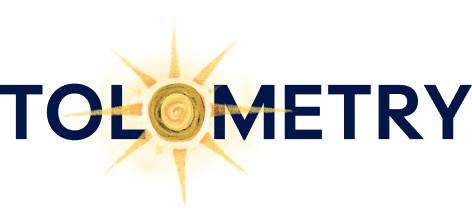How to Hire or Be Hired: A Jobs Panel

At the NACIS annual meeting last week, I ran a jobs panel with 5 people from various parts of the geo industry, including Azavea (Sarah Cordivano), CartoDB (Andrew Hill), ESRI (Sean Breyer), National Geographic (Martin Gamache), and the State Department (Leo Dillon). Thanks to all y’all! I wanted to run this panel because we learn in school about how to design a map, but we don’t learn how to a) go about searching for and securing a job, and b) hire someone else. I loved moderating the panel and am grateful to everyone who participated. Here are the questions that I asked.
I want to outline the key takeaways that came out of the session, in my subjective opinion. They’re mostly applicable to cartography / design / mappy jobs, but perhaps will be helpful to others, too.
- Make an annotated portfolio. You should have an online portfolio. Employers are interested not just in seeing a bunch of stuff that you made, but they want to hear about your process for making these things. They want to hear how you creatively solved problems, what you would do differently next time, which software you used and how you used it. And it’s about quality over quantity. Don’t just throw in every thing you’ve ever made; pick out your best pieces and explain your creation process.
- Your resume doesn’t matter as much as your portfolio. Most people said they didn’t care so much about where you’ve worked before or your exact experience, but they wanted to hear about projects that you’ve worked on that you were passionate about. No one looks closely at resumes, they’ll just give it a quick glance. But beware: a poorly designed resume is a red flag for a cartographer/designer position. And you should tweak it depending on which job you’re applying for; assess what they’re looking for and adjust accordingly to highlight different experiences.
- Build a network. If the three rules of real estate are “location, location, location,” then the three rules of getting hired are “network, network, network.” Pretty much everyone on the panel said they almost exclusively hired people either from within their direct network or who were within a couple of degrees of separation. One panelist so poignantly said, “You have you to learn to network without being creepy.” Ask people at a place you’re interested in working at for an informational interview. Give a presentation at a conference. Encourage your university to make contacts with local companies.
- Do your homework. Read up on the organization where you are interviewing. Read their blog to get a feel for their culture and what they value. Ask targeted questions. Think about why it is you want to work for that particular company.
- Culture matters. I’ll just quote Martin Gamache here: “The fact is, you spend most of your waking hours with your co-workers, and if you don’t know how to get along with them, if you don’t know how to communicate effectively, it makes the workplace miserable for everyone else.” When looking for a job and when hiring, cultural fit is an elusive idea, but important nonetheless. Ask questions about culture to see if you think you’d fit.
- Learning matters. Coming in with some hard skills is important, but everyone emphasized that they are looking for candidates who are looking to grow and who acknowledge that they don’t know everything.
- Teaching matters. In an interview, it’s awesome if you can explain a complicated concept in layman’s terms. In the workplace, you’ll all be learning from each other, so they want to see if you’ll be good at teaching. It doesn’t mean that you need teaching experience, but rather that you are interested in building up others.
- Be ready. Job postings often have tight deadlines, so have your resume and portfolio ready. They can be tweaked as needed for a given position, but it’s harder to create something from scratch on short notice.
- Be real. Don’t oversell yourself. If you’ve taken one JavaScript class and haven’t done much outside of that, don’t sell yourself as an expert programmer. But be sure to mention that you do have some experience and are looking to learn more… unless you don’t want to learn more. In which case, just be upfront about what you are and aren’t looking for.
- Negotiate. Some places have predefined, upfront pay ranges. Others don’t. But there is no harm in negotiating at every step of the process.
A few bonus tips from yours truly
- Don’t wait for a job announcement to contact a place you’re interested in. I found an awesome internship last summer at Development Seed, but it’s not like they had an internship job description up on their website. I contacted a bunch of companies in search of an internship, and the vast majority who I heard back from didn’t actually have jobs posted on their websites.
- Keep an ongoing list of places you’re interested in working. I have a spreadsheet with a list of every place I might possibly be interested in working at someday. It includes contact information and a note if I know someone who works there (or know someone who knows someone who works there). I am constantly adding to it as I see things pop up on Twitter or blogs. Then when it’s time to enter the job market, I don’t have to think, “Where should I apply?”
- You’ll be rejected. Cry and then get over it. Let’s say 50 people apply for a given job. That means 49 people won’t get it. Which means I’ll be that person 49 times out of 50. You’ll probably need to apply to a bunch of places before you find the right fit.
- Get over your imposter syndrome. You have something to bring to a team. You do. You are worthy and knowledgeable even if you don’t think you are. It can be intimidating to apply for jobs - you read a job description and think, “I only fit like 50% of this!” But it turns out that when they’re hiring for a job, they don’t expect to even find someone who fits all of the qualifications. Apply for the job. Send them an email and ask a question.
- Fake it til you make it. One of the crazy things about being an adult is recognizing that no one knows what they’re doing. We’re all figuring it out as we go along. Speak confidently even if you’re not sure what you’re doing. Granted, this is a balance to #9 above. You don’t want to be disingenuous, but also trust yourself that you will be able to learn and grow.
And now, some personal musings
I worked hard to put together a panel that represented different parts of the geo industry. I also worked hard to put together a panel with good women representation. My original panel had 3 women and 2 men. Then 2 of the women couldn’t participate for one reason or another and replaced themselves with male colleagues. I was upset - white men are so overrepresented at conference sessions! But guess what - life goes on. And it turns out that white men are the people doing a lot of the hiring out there, so it might not be the worst thing in the world to hear what they have to say. I have nothing against white men by the way. I just want the world to be moving in a direction where it’s not just white men making all the important decisions. And I can’t say anything at all about racial diversity. I totally failed there. Improving diversity at NACIS in general is something that I would love to explore but have no idea where to start.
Speaking of, I asked a follow-up question to the panel in the section about culture that essentially said, “Hey, you value culture and cultural fit. That typically means hiring people who are like you. Does your organization care about diversity? What do you do to promote cultural diversity?” There were a couple of half-hearted attempts to answer it, but most panelists opted not to respond. From the fact that people largely didn’t address this, it’s clearly not a priority in hiring.
^This, coupled with the fact that most people hire other people based on their networks (this isn’t a novel idea from this panel, it’s pretty widely known) makes me think: someday, when I’m hiring a bunch of people, I want to make a concerted effort to hire people outside of my network. How is there supposed to be social mobility if we just continue to hire people within our inner circles?
Thanks
Thanks to all of the panelists who participated (Sean Breyer, Sarah Cordivano, Leo Dillon, Martin Gamache, Andrew Hill). Thanks to Timur Girgin and Kristen Vincent for taking notes for me during the session. And Morgan Jarocki for posting his notes online. Thanks to Tanya Buckingham for brainstorming questions with me. Thanks to NACIS for being the nicest.












